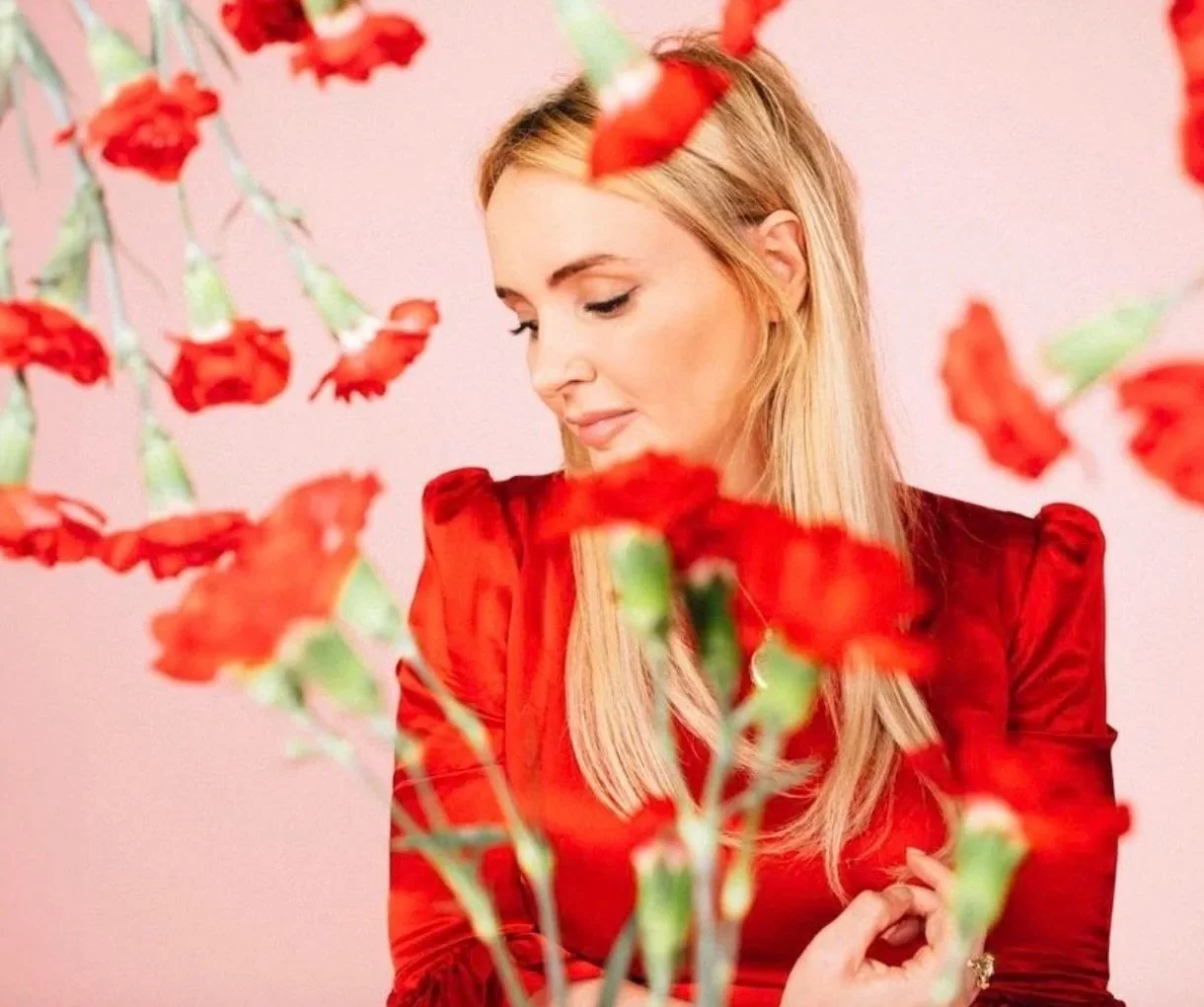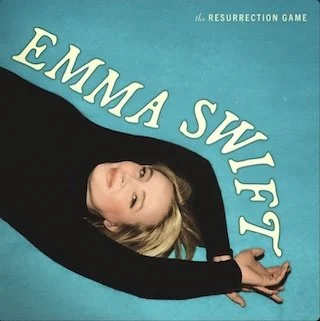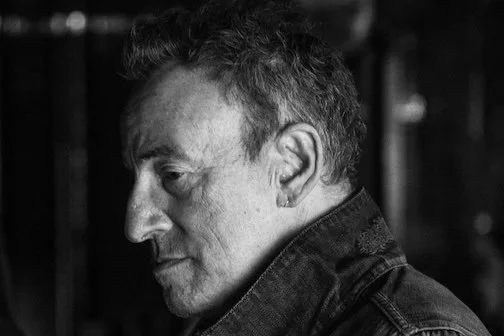
Emma Swift: ‘I’m an analogue baby in a digital dream’
THE STATE OF SOUND INTERVIEW
Since the release of Blonde on the Tracks, her album of Bob Dylan covers, Emma Swift has been to hell and back. At this turning point in her career, she told State of Sound about her breakdown and the stunning new album which came out of it.
Interview: David Rea
Photo: Laura Partain
12 September 2025
David Rea: How are you feeling about the album now it’s finished and about to be released? Are you able to be objective about it in any way?
Emma Swift: I’m very happy and very relieved the album is finally ready for release. I’m a slow-moving person in a fast-paced world, and sometimes I find myself feeling out of pace with the times. I’m an analogue baby in a digital dream. This album began production in 2023 on the Isle of Wight in England. At the time, I thought I’d have it all finished and figured out by the summer of that year. But life took some challenging twists and turns and the project became delayed. There’s a longer story to be told here, about navigating a mental health crisis and overcoming it, but I’ll probably save it for a memoir. To keep it brief: I had a nervous breakdown and had to spend a significant amount of time in hospital, and after that, time at home recovering and rebuilding my world. So the album was stalled, and then started again in June 2024, once I was feeling better.
Did you have any hesitation about speaking publicly about your mental breakdown, given how hostile and unkind the world can be, particularly on social media?
I think the world would be a better place if more people talked openly about their experiences, especially regarding mental health. It’s rare, but not unheard of for women at my age and stage of life to suffer from severe mental health issues as their hormones start to take a tumble. When I got sick, it took almost a year to figure out what was wrong. During the time I was ill, I was fortunate enough to come across a couple of books that probably saved my life. In particular, Horatio Clare’s Heavy Light: A Journey Through Madness, Mania and Healing helped me to find a way out of the black hole I was in. I am enormously grateful to him, and to other writers who have given a voice to their experiences of breakdown.
“While I was in hospital, I was able to play guitar and write songs. When I got out of hospital, I suffered a fairly long period of anhedonia and despair and wrote nothing. For the most part, I felt as though I was living in a cement block and trying to claw my way out. It wasn’t a creative time, it was a time of hanging on for dear life.” — Emma Swift
You have said it took you around a year after your breakdown to be fully functional again. Did you do any writing during that period, and if so what did you write?
While I was in hospital, I was able to play guitar and write songs. When I got out of hospital, I suffered a fairly long period of anhedonia [a symptom of depression resulting in a reduced ability to experience once pleasurable activities] and despair and wrote nothing. For the most part, I felt as though I was living in a cement block and trying to claw my way out. It wasn’t a creative time, it was a time of hanging on for dear life.
What music did you listen to during your recovery, and did it contribute to your recovery in any way?
My love of music has gotten me through the most difficult times and will continue to do so.
Could you talk a little bit about how your partner Robyn Hitchcock contributed to your recovery?
Robyn is a very loving and supportive partner. We’re a great love story. When I was at my lowest, he had absolute faith I’d find a way back to being my old self. Not everybody is capable of that. But he really believed we’d get through it, and we did.
At what point did the album come into focus as a cohesive whole for you? Was there a particular song or group of songs where you noticed particular themes emerging?
The album is a collection of love songs about trying to be a good person in a world that often makes that task really difficult. I wrote most of it before my breakdown, but the themes resonate with what happened to me. Some songs were recorded before I was hospitalised, and some came after: ‘No Happy Endings’ and ‘For You and Oblivion’ for instance.
“When I worked in TV in Australia, Christopher Hitchens was occasionally an interviewee. He tended to arrive on the show absolutely smashed after a long New York lunch. He was funny, charming and way too wasted to be on TV, but I guess he figured it was going to air in Australia and it didn’t really matter too much. I loved it. ‘For You and Oblivion’ is my attempt to have a conversation with his ghost.” — Emma Swift
I love the album cover: the photograph, the colour, the font — it's really striking. At first I thought the bright and happy look didn't quite go with the melancholy music. But then I thought maybe this is Emma Swift after recovery. The album cover is the result of the journey she went through in the music. Am I overthinking things?
You’re definitely overthinking things! The cover is blue because the record is a blue-sounding record. The design is a 1960s-style homage to Françoise Hardy, Marianne Faithfull, Dusty Springfield, all singers I admire, who are sonically referenced one way or another on the album.
The album was recorded over the course of a week on the Isle of Wight. What kind of state were the songs in when you arrived on the island?
They were finished. I’d never rock up to a studio underprepared, I don’t have the budget for that! Most of the record was tracked on the island, but we also recorded in Nashville, TN.
The studio you recorded in is residential and in a beautiful spot. Do you think that location contributed to the album in any way? What was the recording experience like? How did a typical day pan out?
Chale Abbey Studios is a wonderful, completely reimagined 16th-century abbey, in a gorgeous remote location. It’s definitely haunted. The band stayed on site, and I stayed in a cute little pub down the road called The Wight Mouse Inn. It was a grey and bitterly cold January. The sun set every day at 4 o’clock. The rain was permanent. We had a lovely time.
I’d love to know the story behind every song on this album, but I know we don't have the time or space. Maybe I could ask about a couple? ‘Catholic Girls are Easy’: what's the story behind that? And ‘You and Oblivion’ — which is such a beautiful piece of storytelling.
‘Catholic Girls are Easy’ is a confession about what being raised Catholic does to horny school girls. ‘You and Oblivion’ is a bit of a longer story. When I was in my early twenties, I worked at a TV news station in Australia. Eventually I became a journalist, but I started out as an assistant on a show called Lateline, which covered news and current affairs, and occasionally had long-form interviews with special guests from all around the world. This was my introduction to the brilliant Christopher Hitchens, who would occasionally be the interviewee. Because of the time difference, Hitchens tended to arrive on the show absolutely smashed after a long New York lunch. He was funny, charming and way too wasted to be on TV, but I guess he figured it was going to air in Australia and it didn’t really matter too much. I loved it. ‘For You and Oblivion’ is my attempt to have a conversation with his ghost.
“Usually when I’m writing with Robyn [Hitchcock], he’s T.S. Eliot and I’m Ezra Pound. I come in and I edit things, shuffle words around. He starts the thought and I get it ready for publication. We don’t write together often. We’re lone cats who share a creative space. Robyn is a prolific songwriter with a swirling, surreal imagination. Me? I’m slow, and my language tends to be more direct and confessional.” — Emma Swift
I’ve read that putting together the album of Bob Dylan covers came out of a period of depression. Singing those songs gave you a reason to get out of bed. The Resurrection Game, equally, came out of a period of struggle with your mental health. It seems making music really does play a vital role in your overall mental health. Has that always been the case?
I’ve always loved music, no matter how I’m feeling. The Resurrection Game wasn’t supposed to come out of a period of ill-health, it just got stalled by it. It’s true, Blonde on the Tracks was born out of a period of immense writer’s block and depression. I started recording it in 2017. Trump had just been elected. Leonard Cohen, David Bowie and Prince had all recently died. There was a lot to be bummed out about.
This is your second full-length studio album. Could you tell us something about the differences between interpreting Bob Dylan songs for Blonde on the Tracks and putting together an album of self-penned material?
There are no differences. I approach each song with the same level of intensity of feeling and desire to get it right. It doesn’t matter who wrote it, the goal is to get to the heart of it.
Your voice sounds different on this album compared to Blonde on the Tracks. With the Bob Dylan covers, your voice sounds gentle and tender. But on The Resurrection Game, your voice has a greater range of tone and texture; you sound more invested in the songs somehow; it feels like there’s more emotion. Do you think that's accurate? Do you think the difference in your voice is because you’re singing your own songs, and songs which are so deeply personal and painful? Or is that too obvious an interpretation?
I don’t think this is accurate, at least, it doesn’t feel accurate to me.
You’ve written some material with your partner, Robyn Hitchcock. What’s your creative process when you work together? Is it very different to the process you follow when you write by yourself?
Usually when I’m writing with Robyn, he’s T.S. Eliot and I’m Ezra Pound. I come in and I edit things, shuffle words around. He starts the thought and I get it ready for publication. We don’t write together often. We’re lone cats who share a creative space. Robyn is a prolific songwriter with a swirling, surreal imagination. Me? I’m slow, and my language tends to be more direct and confessional. He grew up listening to Syd Barrett and Bob Dylan, and I grew up listening to Sinéad O'Connor and the Sundays. Our approaches are utterly different in every way, but we encourage each other and are very supportive and respectful of each other’s process.
You’ve described yourself as non-prolific, yet on social media in June you posted you had launched yourself into writing your next album. What are your plans for your next release?
Only foolish people announce their plans before they’re ready to be hatched! I’ll keep you posted.
Thank you so much for taking the time to talk to us. I really appreciate it.
You're very welcome!
© 2025 State of Sound. All Rights Reserved
MORE ON EMMA SWIFT
STANDOUT NEW ALBUM
Words: David Rea
3 September 2025


